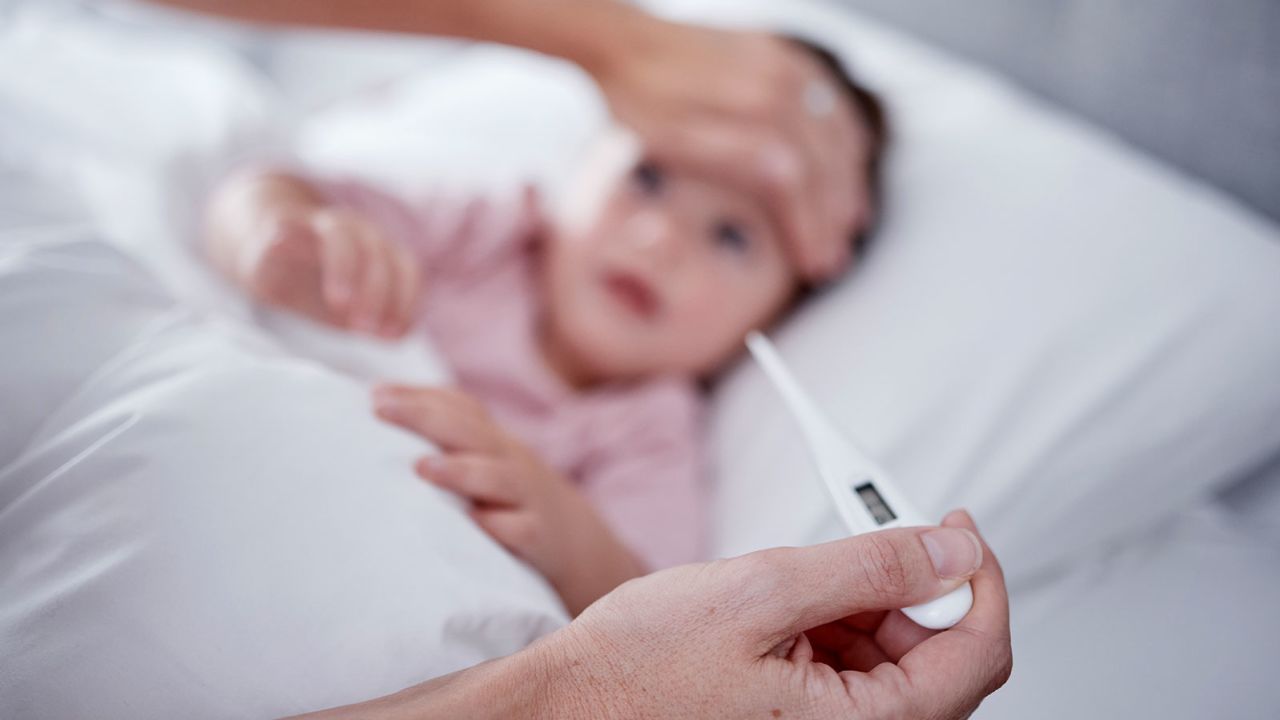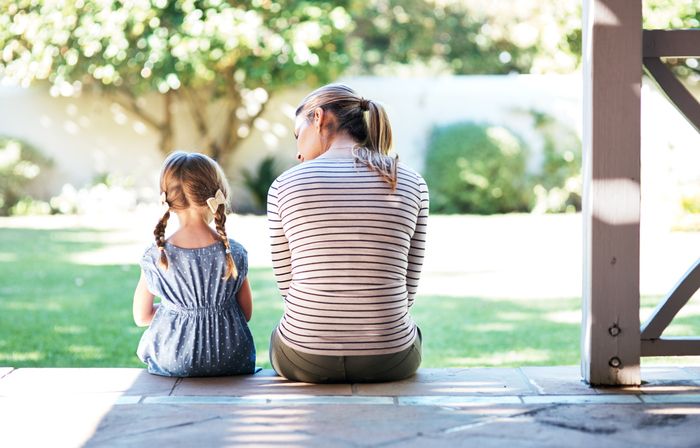United States: Respiratory diseases in children increase 3:24
(CNN) --
A cold, sneeze or cough can set off alarm bells for families with young children.
Vickie León, a mother of two, says that her children, ages 4 and 2, sometimes go a month or two without bringing any respiratory illness from daycare.
Then there are times when it seems like the family from Aurora, Colorado catches a cold with a virus every other week.
"Once that happens, we stay at it for a while," he says.
Many children have spent years socially distancing to protect themselves from Covid-19, and now healthcare systems are overloaded with cases of the respiratory syncytial virus, or RSV, which can cause a runny nose, decreased appetite, coughing, sneezing, fever and wheezing.
This is a common viral infection.
Nearly all children contract RSV sometime before the age of two, according to the US Centers for Disease Control and Prevention (CDC).
And the immunity developed after an infection often wanes over time, leading people to have multiple infections throughout their lives, said Dr. William Schaffner, a professor in the Division of Infectious Diseases, School of Medicine from Vanderbilt University, in Nashville, Tennessee.
US registers a significant increase in respiratory diseases in children
The challenge for public health this year is that while many children have been kept at home to protect themselves from covid-19, they have also isolated themselves from RSV, which means that more are getting their first, and therefore more serious, infection now, said Dr. Leana Wen, a CNN medical analyst, emergency room physician and professor of Health Policy and Management at George Washington University's Milken Institute School of Public Health.
An RSV infection is usually mild, but it can be cause for concern for young infants, children with underlying conditions and older adults, said Schaffner, who is also medical director for the National Foundation for Infectious Diseases.
advertising
This doesn't mean it's time to panic, added Wen, who is also the author of "Lifelines: A Doctor's Journey in the Fight for Public Health."
Getting RSV and other viral and bacterial infections is part of children's growth and the development of their immune systems.
Here we explain how to assess when to leave the child at home and when to visit the pediatrician, according to experts.
Is it a cold, flu, covid or RSV?
Between colds, the flu, strep throat, RSV, and lingering covid-19, there are plenty of infections spreading this winter, and they can often look a lot alike in terms of symptoms, Schaffner says.
Even the most astute doctors can have trouble distinguishing them when a patient is in the office, she added.
However, pediatricians are highly practiced and equipped to treat upper respiratory tract infections, even if it's not possible to distinguish exactly which virus or bacteria is the cause, Wen said.
Whichever virus or bacteria is causing your runny nose, headache or sore throat in your case, your child's age, symptoms and state of health will likely make a difference in how you proceed, he said. she.
A common respiratory virus is spreading at unusually high levels, overwhelming children's hospitals.
This is what parents need to know
Should you leave your child at home?
Ideally, public health professionals should not send any child with symptoms to school or day care, where they could spread infections, Schaffner said.
But, especially for single parents or caregivers who must be at work, that's not always the most practical advice, she added.
Home tests can tell if a child has a covid-19 infection, he added.
But for other viruses, like a cold, there may not be a good way to know for sure.
Some of the symptoms that could really indicate that it is time to keep your child home from school or day care are high fever, vomiting, diarrhea, eating problems, lack of sleep or breathing problems. Wen said.
Donna Mazyck, RN and CEO of the National Association of School Nurses, breaks it down into two main considerations: Is the child running a fever and too sick to fully participate in learning?
Families should also check their school's guidelines, some of which may be detailed about when a child should stay home from school, while others are more based on parental discretion, he says.
"If in doubt, check the school rules and have a plan with the pediatrician," Wen said.
And for children at higher risk due to other medical conditions, see your pediatrician before your child gets sick to find out what signs to look for.
When is it time to go back to school?
Again, this is where schools may have different policies and it becomes important to check with written information, a school administrator or the school nurse, Wen said.
"Generally, schools will ask that the child does not have a fever and does not use fever-reducing drugs" before returning to the classroom, he said.
For children with asthma or allergies, it may not be reasonable to keep them out of school every time they show any symptoms of coughing or running a runny nose, Wen said.
That could keep them out for half the year.
And some symptoms, such as a continuous cough, can persist while the infection clears up and the child recovers.
In those cases, it may be appropriate to send a child back to school, Mazyck said, reiterating that it's important to check the school's guidelines.
When to seek medical help?
Families often take their children to the pediatrician when they seem unwell, Schaffner said.
However, with so much going on at once, it's important to remind families that doctors prefer to see children who aren't feeling well before they get worse, she added.
If they appear lethargic, stop eating or have difficulty breathing, parents and caregivers would also be justified in taking their children to the pediatrician and seeking medical attention, especially if symptoms worsen, Schaffner said.
"It's not something you should doubt," he said.
How to know when respiratory syncytial virus is severe in children 1:48
For younger babies, it might be time to go to the ER if they have trouble swallowing fluids or have dry diapers, flaring nostrils, trouble breathing and a chest that is contracting when it should be expanding, Wen added.
Families should seek emergency treatment for school-age children who have trouble breathing and speaking in full sentences, Wen said.
Fortunately, most of them don't need emergency treatment, and those who do usually go home and are well within a couple of days, Schaffner said.
"Parents should know that treating RSV and other respiratory infections is the bread and butter of pediatricians and emergency physicians," Wen said.
"This is what we do".
How to prevent disease and contagion?
To prevent these respiratory diseases, teach your children to use hygiene practices that were being promoted by health professionals long before the pandemic, such as washing their hands, using hand sanitizer when a sink is not available, coughing and sneezing into a elbow or tissue, and not sharing food or utensils with friends, Wen said.
There is still no vaccine for RSV approved by the US Food and Drug Administration (FDA), but there are others that are effective for influenza and covid-19, Schaffner said.
If your child isn't already vaccinated, talk to their doctor about protecting them against these viruses, he added.
Respiratory diseases













